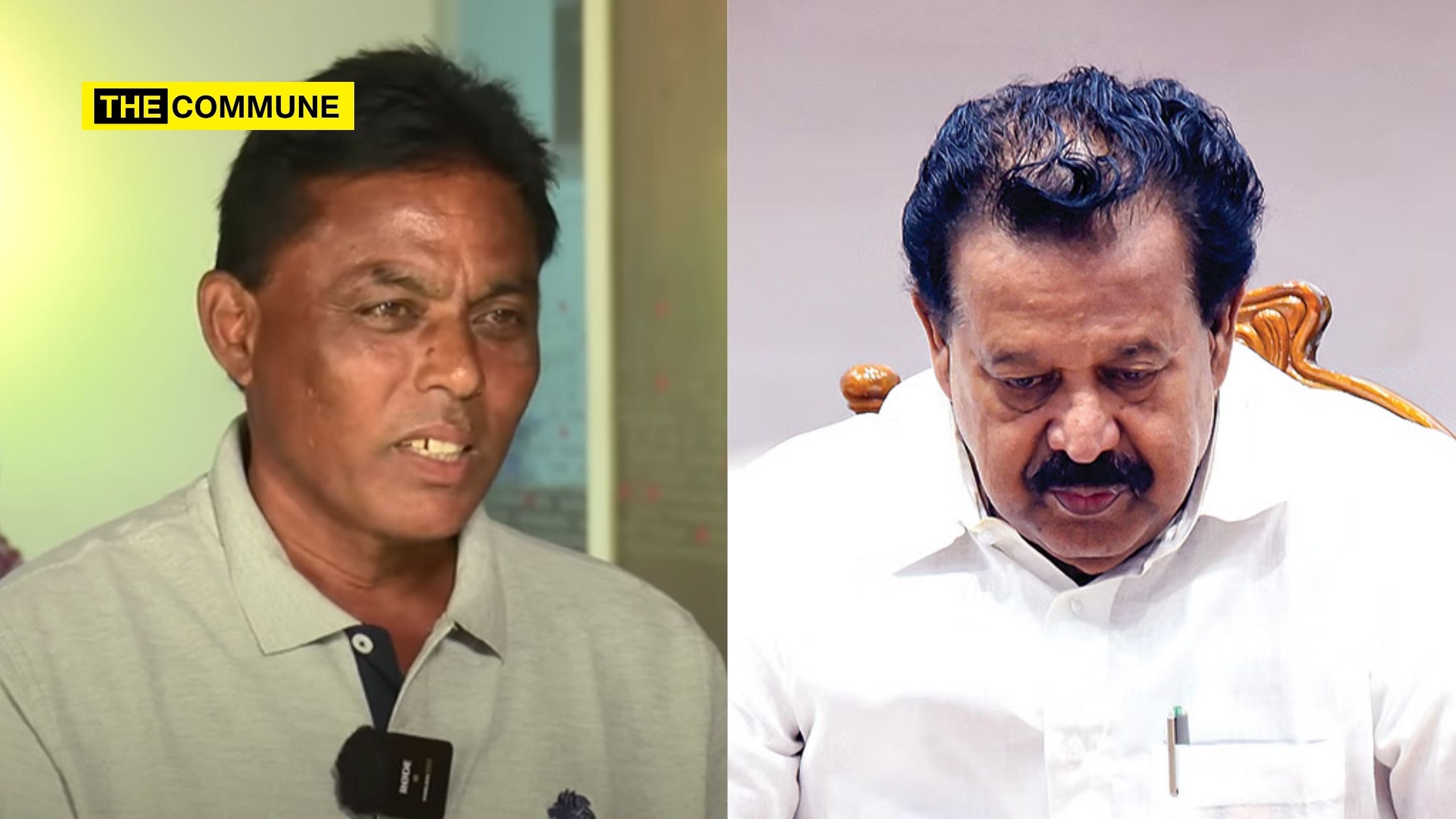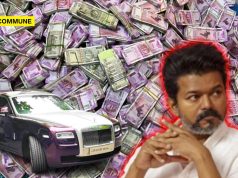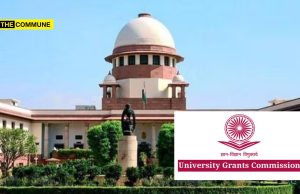
In a legal saga spanning over a decade, now dethroned DMK Minister Ponmudi found himself entangled in a complex web of corruption allegations, legal proceedings, and a controversial acquittal. From the initiation of legal proceedings in 2011 to a recent sentencing in 2023, the case has raised eyebrows and sparked debates within both legal and political circles.
The Department of Vigilance and Anti-Corruption took action on 26 September 2011, accusing Ponmudi and his wife of amassing assets exceeding 65.99% between 13 April 2006, and 13 May 2010. Despite being cleared by a Special Court in Villupuram, the Minister’s hometown, the total amount involved in the case amounted to ₹1.36 crore.
A special court in Villupuram acquitted the individuals involved in 2016, overseen by Special Judge T Sundaramoorthy, specializing in cases related to the Prevention of Anti-corruption Act. However, in 2017, the DVAC filed an appeal with the high court, leading to the approval of the appeal.
High Court’s Concerns and Unprecedented Intervention
On 10 August 2023, the Madras High Court expressed apprehensions about the verdict delivered by District Judge Vellore in the disproportionate assets case involving Ponmudi and his spouse. Justice Anand Venkatesh, utilizing his suo motu revision powers, raised questions about the legitimacy of the acquittal of the Higher Education Minister. The 17-page order marked an unprecedented event, causing ripples in the legal and political spheres, particularly within the ruling party. This incident stands as a unique instance where a judge independently examined the legality of a lower court’s decision.
Sentencing And Political Ramifications
In a significant development on 21 December 2023, Justice G. Jayachandran sentenced Tamil Nadu Higher Education Minister K. Ponmudi to three years in prison and imposed a fine of ₹50 lakh for a corruption offense. The verdict triggered immediate disqualification under Section 8(1) of the People’s Representation Act, 1951, upon his conviction.
Despite the verdict, Ponmudi wasn’t required to surrender immediately. His prison sentence has been temporarily suspended for 30 days, providing him with an opportunity to appeal the conviction in the Supreme Court.
Mining Owner Exposes Corruption Challenges In Industry
In a recent interview with Red Pix YouTube channel, Selvam, a mining business owner, who hails from Vazhai Thota Valasu village in Erode exposed several shocking allegations. In the year 1992, Selvam unexpectedly ventures into the drill rod reconditioning business and establishes a company called Drills and Pneumatics in the Krishnagiri district. Despite starting with no capital, he successfully supplies drill rods to various mine owners in the region.
During the years 1994-1996, Selvam’s business flourishes. Around this time, he diversifies into the mining sector, initially engaging in royalty-based operations. He gains significant traction by leasing mines in Karnataka, experiencing notable success.
In Krishnagiri, Selvam turns around a previously unsuccessful quarry through his sheer determination and luck. Despite challenges from the quarry owner, who attempts to force him out, Selvam stands firm. Additionally, he takes on another quarry, rumored to be a benami quarry belonging to Minister Rajakannappan, and achieves success in that venture as well.
Amidst these endeavours, a mines officer, allegedly under political pressure from ADMK’s Anbazhagan, targets Selvam while he operates a revenue quarry. Facing repeated challenges, Selvam decides to establish his own quarry on the land he acquires in Thenkani Kottai, Krishnagiri district. Selvam went on to describe the necessity of bribing officials, from the Village Administration Officer (VAO) to the Tehsildar, to obtain a licence.
He states “I obtained mining application from district mining office, it is a small process, no rocket science with small formalities of attaching Patta, Chitta, Adangal etc by enclosing revenue documents. If you go, you should start from VAO, then Revenue Inspector (RI), surveyor and upto Tehsildar on those periods. If you give Tehsildar an amount (bribe) he will submit the documents to mines office in district. There was Additional Director in mines office, if you give amount them, they will forward it collector. In those days, even collectors wouldn’t receive bribes (but today everyone does), then files reaches to Guindy mines office from Krishnagiri. Then the files should be moved to Secretariat to be signed by minister. We should give a fixed amount that is ₹3 lakh per license in Guindy mining office on that time, the staffs would share among them. In the office, there will be indication only if you go and meet the minister, the file will be further processed to Secretariat”.
Between 2010 and 2011, during Ponmudi’s tenure as the mining minister, Selvam encountered significant bribery demands he says. To facilitate the process, he apparently navigated through various offices, including the Mines Office in Guindy, Chennai and eventually the Secretariat. During a meeting with Ponmudi at his home in Villupuram, the minister’s personal assistant, Jeeva, allegedly clarified to him that the bribe wasn’t solely for Ponmudi but would be shared among others, including the Kalaignar family.
“This was around end of 2010, towards the end of Kalaignar’s regime when Ponmudi was Mining minister. To meet ministers there are various channels I went through. ₹3 lakh per acre was the bribe amount. I had 3.61 hectares. It was around 8 acres and had to pay ₹25 lakhs. Without this amount, you cannot process the application he said. I pledged my home and agriculture land went and to see him in Villupuram (with my wife and child) at his house. He is a minister he won’t get money directly, instead his PA was there and minister came after playing shuttle. I asked him (PA) can you please reduce the amount. He replied “This amount is not fully for Anna, one part goes to party fund, another part for Kalaignar family, remaining smaller part with him. Anna wanted me to communicate this. Don’t think Annan (Ponmudi) is taking the whole share”. He added that he was not saying this just because Ponmudi the bribe amount and the current situation of politicians in the state. He also said, that he was running from pillar to post for 2.5 years to get this licence and that without bribe nothing would happen. He compares to MGR’s regime when bribes were not even a thing.
In the ADMK regime under Jayalalithaa, he says there was not much of a problem till she was there. Around the 2014 parliamentary election time, he alleges that nursing PM ambitions, Jayalalithaa stops functioning of businesses that are generating income for the government. He also alleges that businesses were asked to pay an amount for the elections and since Selvam was a great MGR fan, he put up posters all over town which depicted MGR asking Jayalalithaa whether she was aspiring to be a PM. He adds that after parting with quarter of a crore (25 lakhs) to Ponmudi, he could not afford to give up more money as he had to look at his own livelihood. Surprisingly, they started issuing permits to all mining businesses as before.
Following Jayalalithaa’s demise, CV Shanmugam assumed control and began overseeing mining operations in Krishnagiri district, dictating the course of action. Operations came to a halt due to allegations of insufficient clearance from the pollution board or EC. Selvam contends that this was a strategy to extract more bribes, asserting that their license was valid until 2031 and the new regulations were introduced to harass mine owners. During this period, Selvam claims to have been fined over ₹3 crores. Under CV Shanmugam’s administration, the bribe amount escalated to ₹4.5 lakhs per acre.
This situation persisted through the DMK regime, with Selvam initially expressing optimism during the early stages of their rule. However, he alleges a downturn after a few months, attributing the decline to Duraimurugan, the Mining Minister, whom Selvam accuses of mismanaging the mines.
He further goes on to say that one had to pay ₹6 lakhs per acre for a license under the current DMK regime.
The legal journey of DMK Minister Ponmudi, intertwined with corruption allegations and subsequent legal proceedings, continues to unfold. The recent sentencing and the unprecedented intervention by the Madras High Court add layers of complexity to a case that has become a focal point of scrutiny and debate. The mining industry, as highlighted by Selvam, reflects broader challenges of corruption that persist in various sectors, demanding increased vigilance and reform.
Subscribe to our channels on Telegram, WhatsApp, and Instagram and get the best stories of the day delivered to you personally.




